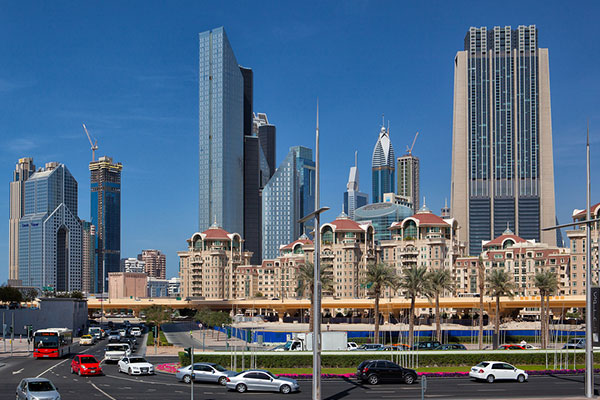
Services, tourism fuel Dubai’s status as global hub
DUBAI, October 29, 2015
The growth in financial and business services, trade and logistics and tourism activity over the last couple of decades has played an important role in fuelling Dubai’s emergence as a global hub, a report said.
“Unsurprisingly the impact on real estate has been positive, with higher levels of occupier demand being generated across the office, industrial and hospitality sectors, respectively,” said James Lewis, head of Knight Frank Middle East, a top real estate services firm, commenting on the company’s inaugural report The Hub Report 2015.
“Moreover the emirate has established itself as a safe, family-friendly and low tax environment – which combined with its connectivity to other global centres – has been attracting the world’s growing population of high-net-worth individuals. Naturally then, demand for luxury residential property has been gathering momentum.”
Looking forward, forecasts from the IMF suggest that the UAE’s economy will outperform the likes of the UK, US, Germany, Hong Kong and Singapore over 2015-2020. This, alongside the fact that the federation is among the easiest places to do business globally, should help to extend Dubai’s lead as a financial and business services hub in the Middle East.
All else equal, this suggests that tenant demand for good quality, Grade A office space will remain healthy in the short to medium-term, the report said.
Turning to the industrial property sector, strong growth over the past decade in manufacturing and exports have been important drivers of demand for logistics facilities in and around Dubai. A number of reasons have supported this, including the excellent quality of the UAE’s transport infrastructure, which has been rated as the best in the world by the World Economic Forum, and the emirate’s strategic location between Europe, Africa and the Far East. In fact these factors have been critical in helping Jebel Ali to attain its current position as the busiest port between Singapore and Rotterdam.
Dubai continues to make strides as a tourist destination and an air travel hub, the report said.
Visitors to Dubai are staying longer to enjoy the city’s attractions, with the average length of stay rising from 2.6 nights in 2004 to 3.8 nights in 2014. Dubai International overtook London Heathrow last year to become the world’s top airport for international passenger traffic – impressive given that less than a decade earlier the former was handling around half the number of travellers compared to the latter.
Meanwhile in the residential sector, prime home prices in Dubai saw an uplift of 59 per cent over the five years to end-2014 – a better performance than London (52 per cent), New York (47 per cent), Hong Kong (31 per cent), Paris (18 per cent), Singapore (7 per cent) and Sydney (2 per cent).
Khawar Khan, research manager at Knight Frank Middle East said: “Admittedly, the sector has faced some headwinds over the past 12-18 months; however the wealthy continue to be attracted to Dubai due to the fact that it remains one of the safest locations in the world, with excellent connectivity, strong economic prospects, a low tax regime, and strong lifestyle factors.” – TradeArabia News Service







